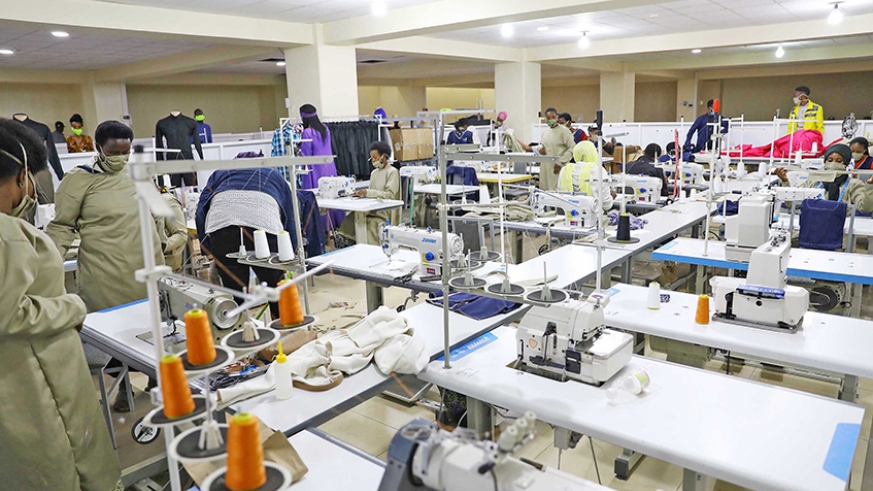The Ministry of Health had, by then, called on citizens to leave masks for Covid-19 patients as well as health practitioners directly interacting with these patients.
A month later, guided by new directives from the World Health Organisation, the government resolved that face masks in public should be mandatory to all citizens.
However, as it was the case for many other countries worldwide, Rwanda experienced a shortage of personal protective equipment (PPEs).
As a result, after being given thorough training on producing these equipment and inspections done by Rwanda FDA, more than 20 domestic companies were authorized to repurpose facilities into the production of PPEs.
That was back in April.
The only fear by then was that the demand for this equipment would exceed their supply, However, it is now the other way round.
So far, over 40 local manufacturers have unsold stocks of over 3 million face masks.
Swaib Munyawera, the Managing Director of Mask Investment Limited that oversees the consortium of around 47 companies. Told The New Times that they cannot find the market for 3.2 million facemasks.
Most of the companies started producing the masks in April.
According to Munyawera, the stock is worth Rwf1.2 billion.
“When we embarked on producing these PPEs, our motive was not to make a profit but instead help in the fight against the pandemic.
As a matter of fact, the government gave us a target of producing six million masks and gave us a maximum wholesale price of Rwf400 per face mask and a retail price of Rwf500,” Munyawera said.
“We achieved the target knowing that the market is assured. Good enough we sold over two million masks, but when the Covid-19 lockdown was lifted, people started making their own, without even being licensed,” he explained.
Government aware of the problem
According to Sam Kamugisha, Director-General for Industry at the Ministry of Trade and Industry, the government is aware of the problem and is, in collaboration with manufacturers, working to find a solution.
“We have even held a couple of meetings with them to look for the solution. During the recent one alongside Rwanda Development Board (RDB), we resolved to cut the long distribution chain,” he told The New Times.
By shortening the distribution chain, the manufactures would work directly with the end-user/customer, eliminating the distributors whose cut would drive the price up.
“We expect this to make the cost of these face masks more affordable and therefore increase their demand,” Kamugisha said.
Manufacturers want the Rwanda FDA to do more inspection and clamp down on dealers selling unauthorised masks.
An expert’s point of view
Teddy Kaberuka, an economic expert says that manufactures of masks should have planned better.
“When you are investing in producing given products, the demand should be the one determining what to produce in terms of quality and quantity, and not the other way round,” Kaberuka said.
“In this scenario, they produced all these facemasks without a clear roadmap of who will buy them and whether what they are producing is what the public wants,” he added.
What made the matter worse is the market trend whereby beyond buying face masks as protective products, people are nowadays also interested in those that are more fashionable – a point that was not considered at first.
According to Kaberuka, the solution to this problem will be to advertise these products and also cut the distribution chain so as to ensure demand.
Not all is gloomy
As of today, there are 81 licensed companies manufacturing PPEs. However, all these are not counting losses.
Some companies like Gahaya Links and Uzi Collections that spoke to The New Times noted that they produce face masks after getting purchase orders so as to avoid losses, adding that they also make sure they produce products that align with what consumers’ needs are.
